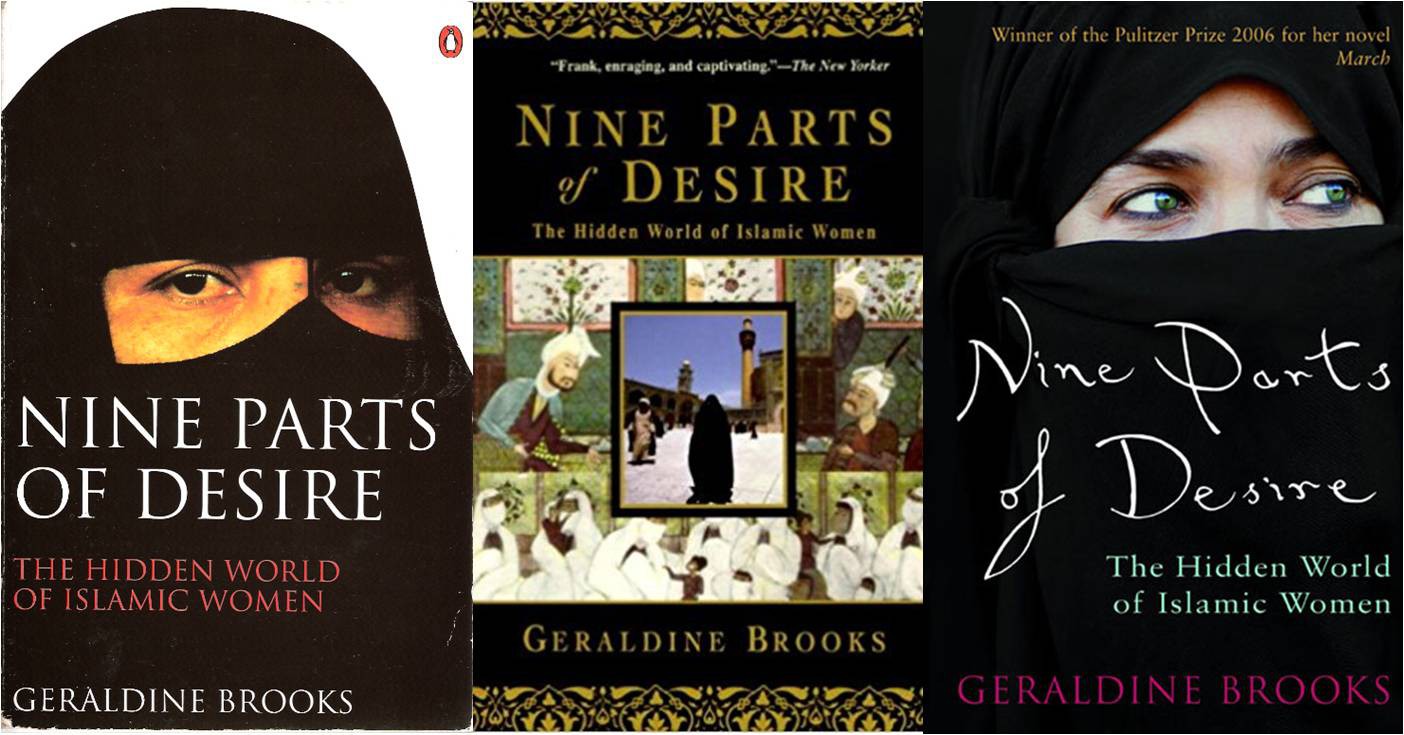As a woman, it is undeniable that there is exceptional pressure placed on us in terms of sexuality, modesty, composure, work, etc. Although we are in the twenty first century, certain topics that to some might seem unquestionable are still being laid on the table for debate. Sometimes we can find comfort in Western literature that probes at concepts that we have been raised not to ask about.
Geraldine Brooks is an American journalist who spent a large portion of her professional career traveling. In her quest to debunk Western myths about Arab women and explore the heart of traditions and practices, she visited several Arab countries meeting with dozens of women; housewives, lawyers, journalists, and prominent women in political positions, who share their stories.
Geraldine Brooks’ book, Nine Parts of Desire, explores the different dynamics of Arab women’s lives from a foreigner’s perspective. Brooks inevitably brings to the table her own preconceptions and prejudices as any foreigner would. What’s profound about this book are the probing questions that we’re too embedded in the culture to ask anymore; Brooks uncovers details that even as Eastern women we do not seek because we’re too involved to rock the boat.
Brooks starts the book off with a claim like any book would; naturally, that claim being that Arab women are subjugated to the whims of the patriarchy, that each practice, taboo, and liberty is the direct result of a carefully calculated formula placed by men. Moreover, she decides to verify the all too popular belief that Islam endorses misogyny. Throughout her journey, however, she begins to understand all of the nuances that were not immediately apparent. With the guidance of the Qur’an and references to the Prophet’s wives, Brooks starts to piece together the complexity of a woman’s life in the Middle East. She explores unique experiences that Arab women are subjected to: female circumcision, hijab, multiple marriages, honor killings, and struggles in the professional world. Finally she arrives at the revelation that misogynistic practices found are not sanctioned by Islam; on the contrary, Islam by law protects and liberates women in many ways. This draws attention to the fact that many practices are bolstered by the false foundation of religiosity whilst their origins are entirely manmade. The autonomy of a woman’s actions is only threatened by the constructs we’ve sanctioned ourselves along the centuries.
Some would probably allege that this kind of book is more fitted to the foreign reader that has little to no knowledge of our culture and origins of religion. But we believe the importance of this book comes from the common denominator it establishes between women across borders. It’s an important piece of feminist literature that sheds light on issues that sometimes become background noise to our lives or occasional news-worthy material. You’ll find yourself disagreeing with much of what Brooks says while at the same time finding connections that never crossed your mind before. For better or worse, it’s a reminder of the fact that we’re a collection of our history; a history so rich that we will never be able to explore all its pivotal events.
Nada is an HR professional and an aspiring novelist. Find her on Instagram @the_nuun

